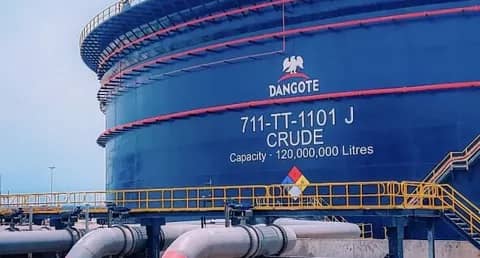Dangote Refinery Reduces Pump Price Amid NUPENG Strike Threats
The Dangote Refinery has announced a fresh price adjustment for Premium Motor Spirit (PMS), fixing the new gantry price at ₦820 per litre while retail pump prices will vary across states.
In a notice released via its official X (Twitter) handle on Thursday, September 11, 2025, the refinery disclosed that consumers in Lagos, Ogun, Oyo, Ondo, Osun, and Ekiti will buy petrol at ₦841 per litre, while those in Abuja, Delta, Rivers, Edo, and Kwara will pay ₦851 per litre.
This pricing structure means a direct reduction of ₦19 per litre for South-West consumers and ₦34 per litre for Abuja, North-Central, and South-South residents compared to prevailing market rates.
The refinery added that as part of the initiative, registered petrol station owners across the country would enjoy free delivery of products, eliminating logistics costs and ensuring wider accessibility.>
“Initially, direct supply will cover selected states, with nationwide expansion in subsequent phases. All petrol station owners are invited to register for free delivery and other benefits,” the statement read.
The move is seen as a bold step to ease the burden on motorists and households struggling with rising fuel costs. However, it comes at a delicate moment, as the National Union of Petroleum and Natural Gas Workers (NUPENG) has once again placed its members on red alert, citing concerns that the Dangote Group reneged on an earlier agreement brokered with the federal government.
In a joint statement, NUPENG President William Akporeha and General Secretary Afolabi Olawale warned that the suspended nationwide strike could resume at any time if their grievances remain unaddressed.
The Dangote Group, however, responded by stressing that it respects the principle of voluntary union membership among its workers, insisting that it remains committed to fair labour practices.
Industry watchers say the refinery’s new pricing and distribution model could reshape the downstream petroleum sector, giving independent marketers and end-users a direct supply line while challenging existing distribution networks. But with NUPENG threatening industrial action, questions remain about how stable the supply chain will be in the coming weeks.

